If you’ve spent time in Nigeria’s creative, tech, music or entertainment scenes over the past decade, chances are you’ve come across something Kolapo Oladapo has touched, whether you knew it or not. A trained lawyer turned designer, strategist, and tech builder, Kolapo’s journey is anything but conventional. His journey includes work as a photojournalist capturing life amid insurgency in Northern Nigeria and creating viral political art that satirised government corruption through reimagined album covers.
In building bridges, Kolapo and his team launched Aux Africa at Cool FM, bringing then-underground artists like Tems, Oxlade, and Fireboy into the spotlight. He also played a key role in securing partnerships with Apple Music, helping to syndicate shows like Africa Now and Rap Life on Nigerian radio for the first time.
In 2019, off the success of Aux Africa, he pitched Clout Africa, a content acceleration and creative hub for artists and creators, where he launched Clout Sessions, Clout Magazine, and Clout Awards. Under his leadership, the platform collaborated with Mavin, Universal, Sony, and even NPR’s Tiny Desk, and produced content featuring artists like Ayra Starr, Blaqbonez, Adekunle Gold, Seun Kuti, and more. During the COVID-19 pandemic, he and his team also led the Pad for a Girl campaign and Freedom Concert, spotlighting period poverty and using music as a tool for advocacy.
More recently, Kolapo co-founded COCOA, a creative community bridging African creators with global opportunities. Through COCOA, he helped develop SIP AI, a Pidgin-to-English tool that helps professionals communicate better in formal environments. Alongside this, he launched Arroweye Pro, an AI-powered reporting tool that helps African record labels and creators track music campaign performance, making data transparent and investment-worthy.
In this conversation, we talk about all of that and more. From humble beginnings, editing album covers and designing shirts for his law school class, to leading campaigns, Kolapo opens up about what it means to build with purpose. He shares why he believes empathy is the most important business skill, why artists should be thinking beyond streaming into physical products, and why we must really listen to understand the pulse of the community.
This interview is a guided tour through Kolapo’s journey across music, media, tech, and storytelling and a call to action for everyone building within culture. Whether you’re a student, an artist, a brand manager, or just someone trying to figure things out, there’s a piece of his story that’ll resonate.
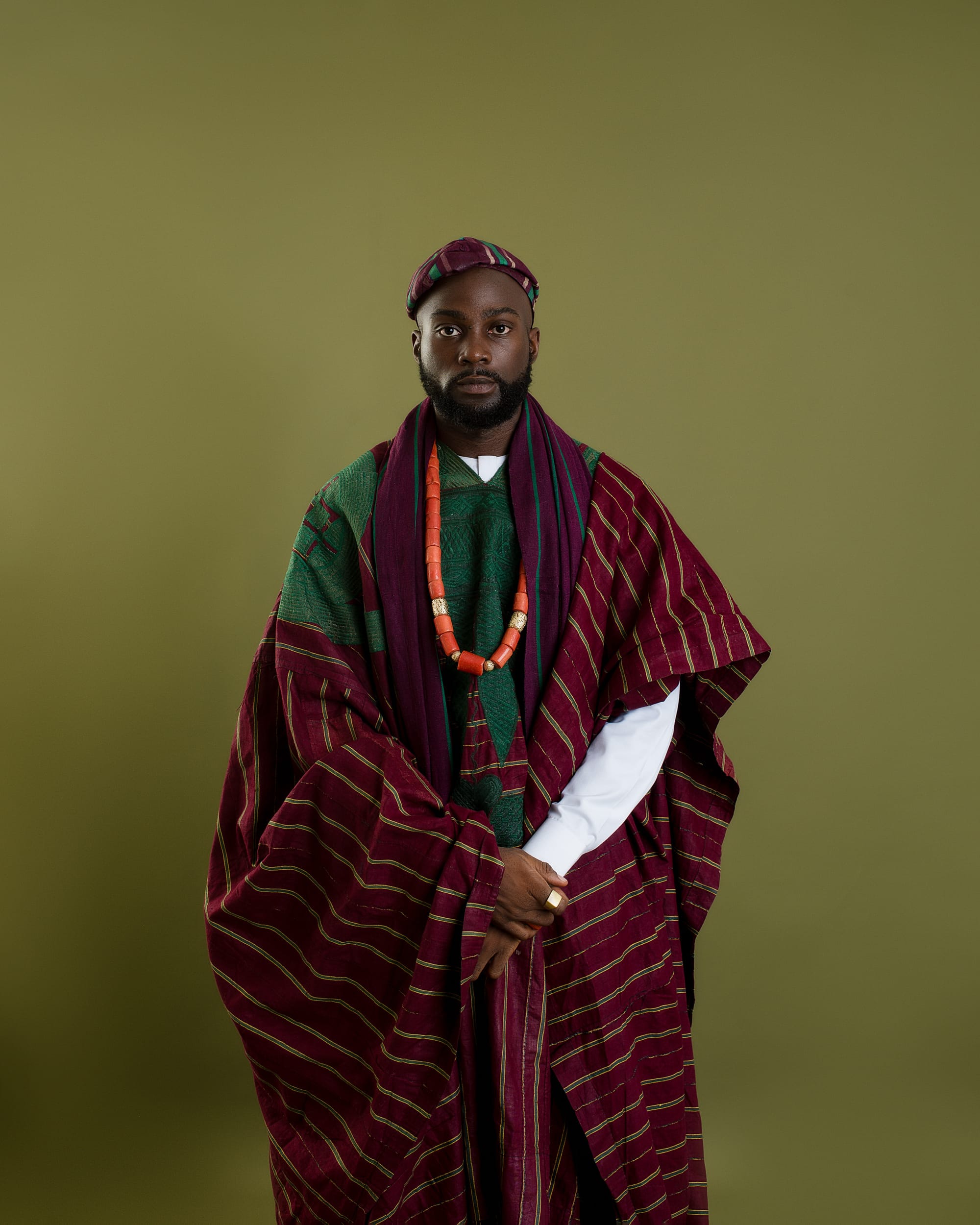
What was your childhood like, and how did it shape your creative instincts?
I started my journey as the last of six children. I had four sisters and a brother, so I spent a lot of time alone. Everyone else was either in secondary school, university, or just generally older. My worldview was mostly shaped by how I experienced things on my own.
I didn’t even start watching cartoons until I was about 12. I used to think Tom and Jerry and Mickey Mouse were all part of the same show. It wasn’t until someone gave me a Tom and Jerry compilation at age 10 that I realised, “Oh wow, these are separate characters.” Most of my early media exposure came from whatever my dad, brother, or sisters were watching, mainly news, and sometimes movies.
So, in a way, my entry into entertainment was sort of from the back door.
Interesting. So, how did your upbringing influence your sense of work and values?
Growing up, even when I came first or second in school, my dad didn’t really celebrate it. He believed in separating school from home life. So I never chased praise, I chased meaningful work.
My dad also made us pitch any school-related expenses. Full PowerPoint presentations, Excel sheets, and round-table family discussions. It was funny, but that’s where I learned how to communicate value, and it’s shaped everything I’ve done since, from photography to branding to design.
That’s nice! How did you first get into design and media production?
While I was still in school, my brother introduced me to a bunch of software: Adobe PageMaker, Photoshop, etc. By the time I got to university, I had figured out how to crack them and started selling the software. My origin story is basically a crime story. (I’m joking. Kind of.)
This was during the BlackBerry era before streaming took off. People were still downloading music via random sites. I’d browse the Billboard Hot 100 to know what songs were trending because people came to me to get music. And many downloaded tracks had ugly thumbnails or watermarks, people didn’t like that. So I started redesigning album art to make it cleaner. That’s how I got into graphics.
It evolved into curating movies, too. People would ask, “Hey, I came for Artist A, what else do you have?” I wasn’t even a music head initially, but I started researching artists just to sell better. I redesigned album art for Taylor Swift, knew her fonts, producer credits, and all, even if I wasn’t a huge fan. At some point, I started dabbling in DJing. I already had access to Virtual DJ, and one of my roommates told me I was actually pretty good. I had an instinct for what flowed, so I’d download effects and transition kits, mixing for birthdays or listening parties for upcoming artists. I’d design album covers and even edit short promo videos, a whole mini-release package, before I knew that’s what it was.
Oh wow. What’s one of the most unexpected creative projects you launched?
I actually started a mini cinema while in university. My school was in Osun, and there wasn’t much to do. A girl I was dating then had a dad who managed a local institute. He had this underused space, and I told him, “You could turn this into a cinema.”
I got projectors from Lagos and turned the room into an experience. Fancy popcorn, photo booths, music, and even pizza slices. It wasn’t just about the films, people came for the vibes. We worked with photographers, used popcorn-scented sprays, and promoted it through Twitter. It really became a thing.
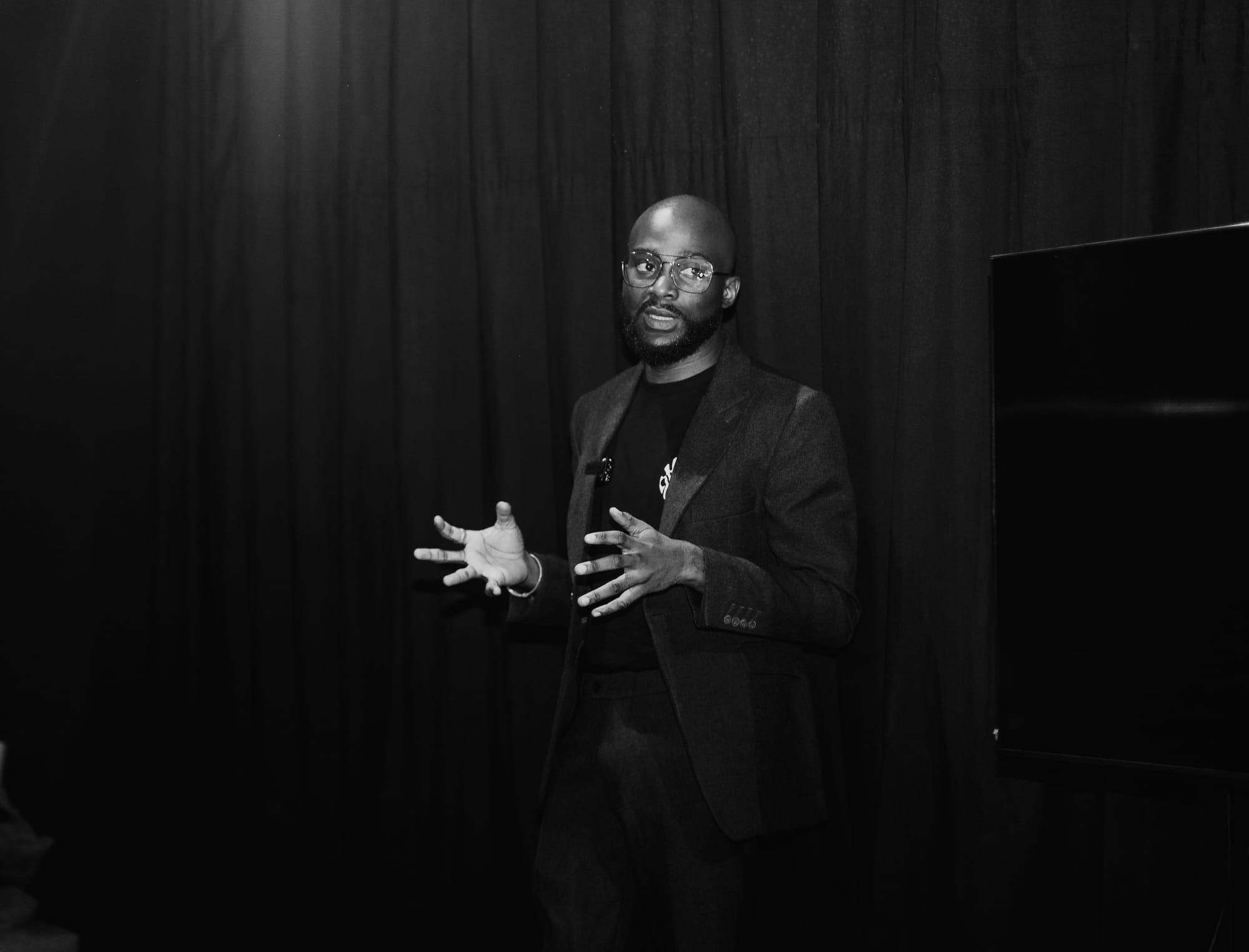
That sounds super fun. So after university, you went to law school. How did law school change your path or reinforce it?
After undergrad, I went to law school. Obviously, you can’t skip lectures there the way you could in uni, but I still found ways to stay creative. I designed our passing-out shirts (even before we got results), built networks, and kept making stuff.
That’s actually where things took a turn. Someone I met referred me for a project designing illustrated banners for hospitals during the Ebola, things like how to wash your hands or prevent disease transmission. We did it in multiple languages, and that was the first time I made real money from creative work.
After that was NYSC. How did NYSC influence your creative outlook?
I went to Kano for NYSC, and it turned out to be one of my best life decisions. I travelled all over Nigeria, Borno, Jigawa, Bauchi, Calabar, taking photos and sharing what I saw. CNN even featured me at one point.
In Calabar, I had a surreal experience. I visited a village, drank moonshine, and rode on a bike with two grown men through banana plantations. We even ran out of fuel and bought from someone’s house pump. We got into an accident, and I still have the scar. But I captured amazing images, saw beautiful places, and felt like a photojournalist, without even knowing that’s what I was doing.
That’s adventurous. What was the moment you knew you needed to pivot your career?
After NYSC, I returned to Lagos and got a job at an agency. One day, I was at the cinema watching “War Dogs” and saw their excitement. I thought, “If I can’t feel this excited about my work, risk and all, then I shouldn’t be doing it.”
I sent in my resignation email right there in that cinema room. Three months later, I started working at Cool FM as Head of Digital. That’s where Aux Africa was born.
The whole idea came from a place of empathy; artists like Tems, Blaqbonez, Oxlade, and others were bubbling, but there was no infrastructure or visibility. They had the sound, but no one really knew them. So we built platforms to amplify their voices.
How did Aux Africa evolve, and how did it eventually lead to Clout Africa?
Just to backtrack a bit, Aux Africa was actually built off a very specific problem. Artists had buzz, but no visuals. Take “Mr. Rebel” by Tems, everyone was hearing it, but no one knew her face. Meanwhile, our inboxes at Cool FM were flooded with “Please play my song” emails. So, I just started replying. We didn’t wait around. We picked artists with potential and started creating content: simple videos, interviews, live performances. That’s how it began.
It was literally just me and two interns. That was the entire digital department when we started. I had a Samsung S7 Edge, my official work phone, which also doubled as the department’s camera. That, along with a borrowed camera from the TV station in our compound, was what we used to shoot the first Aux Sessions. We’d reach out to artists like, “Yo, your song is good, do you want to come shoot this?” And they’d pull up. One of the angles was shot with the S7 Edge. The other, with that borrowed camera.
And somehow, those videos actually worked. They did what they were supposed to do: create visibility for artists who deserved it. To this day, Tems’ session is still the most viewed video on Cool FM’s YouTube channel. Last I checked, it had over 850,000 views. That’s from a phone and a borrowed camera.
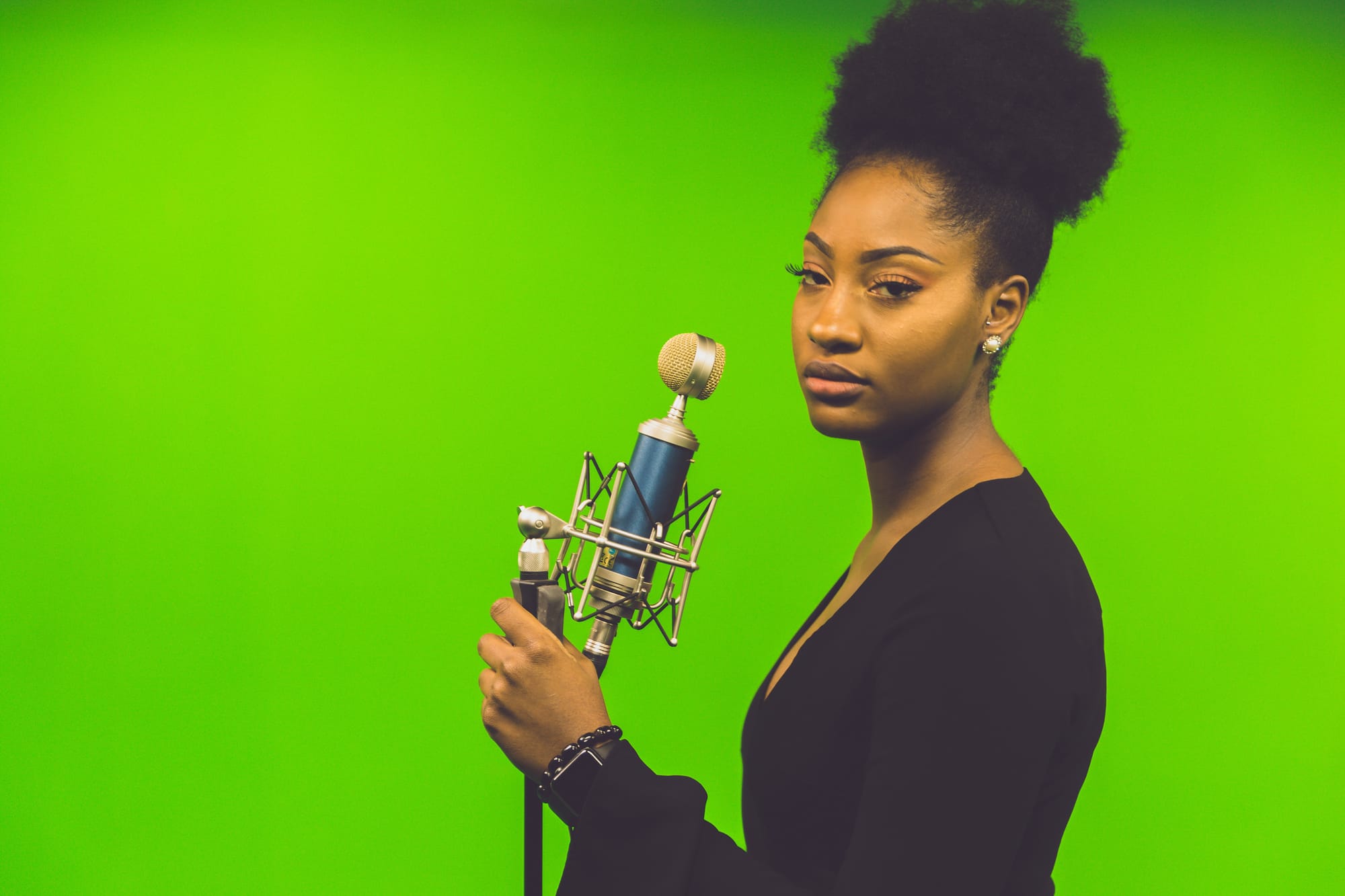
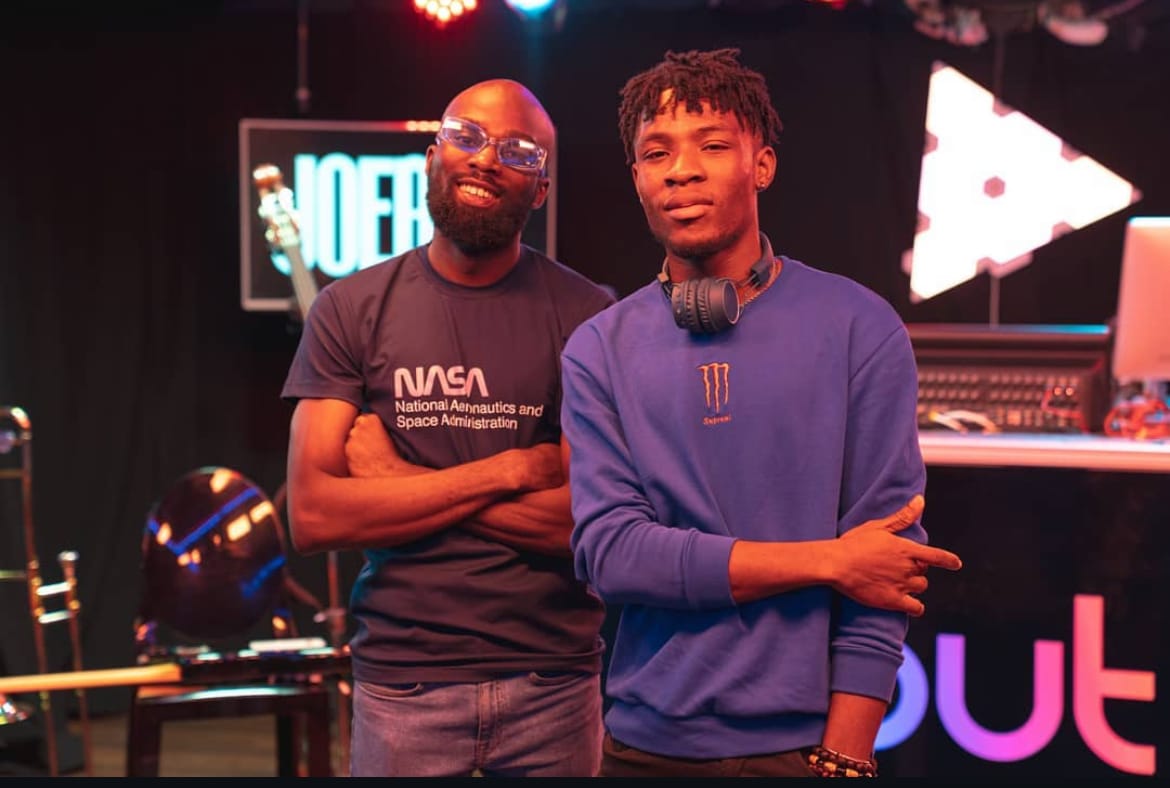
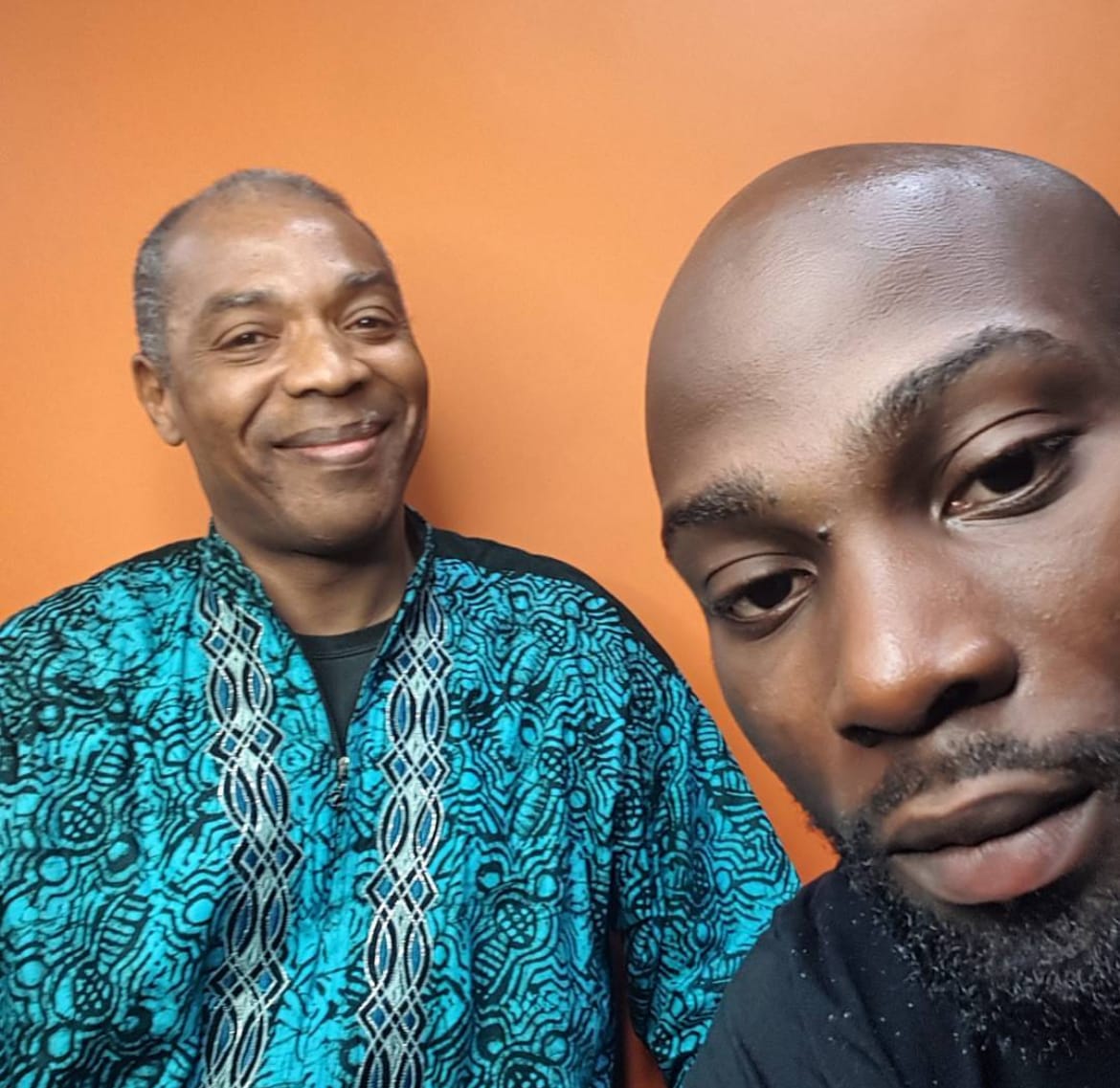
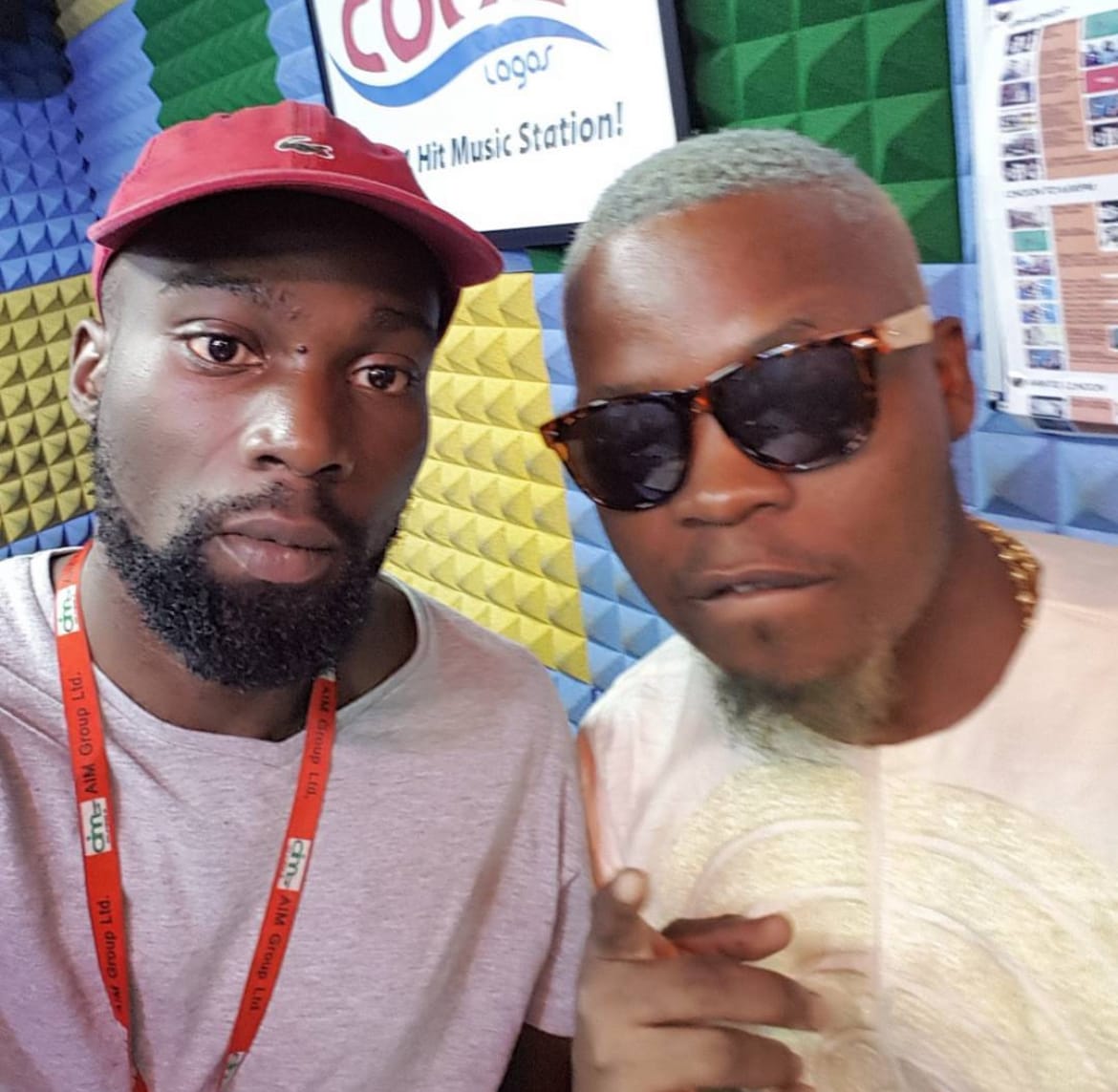
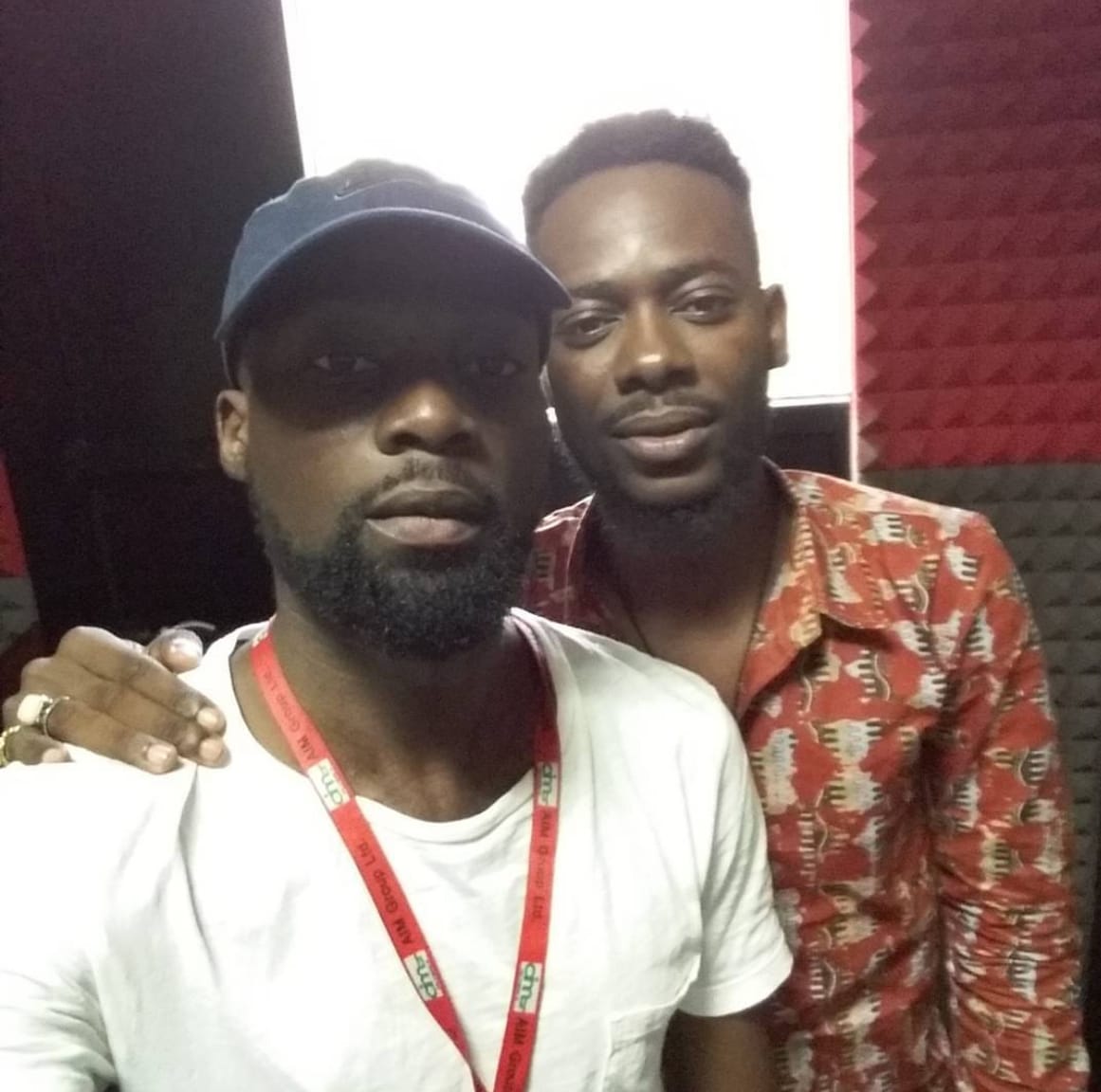
Then came Clout Africa, which, of course, became a much bigger machine. And honestly, a lot of those ideas weren’t from some business textbook. They came from watching people, from asking, “What do these artists and audiences need? What’s missing?” That’s it.
Look, I don’t care what business school you went to, empathy is the most important skill in the world. If you can put yourself in someone else’s shoes and actually understand what they need, and then develop the skills to give it to them, you have a business. Full stop. There’s no other trick. People will trust you if they feel like you “get” them. Like, “This person knew exactly what I needed when I needed it.”
What did that experience teach you about creativity, resourcefulness, and starting out?
All of that validated something I’ve always believed: you don’t have to start perfect. You don’t need the best gear or a huge team. You just need an idea, a sense of purpose, and the willingness to start with what you have. Because truthfully, you never know what’s going to happen. But nothing will happen if you don’t start. That’s always been my motto.
What major partnerships or milestones came out of the work you were doing at the time?
We landed the Apple Music syndication deal, which is still running. First, we did an agreement around Rap Life and Africa Now Radio, and later The Agenda with Dotty. That opened doors to campaigns like the Shazam 3+3 campaign, still the only one Shazam has done in West Africa, as far as I know. Then came the Africa to the World playlist and Naija Risers. That was my first brush with Apple Music. And then, at Clout, we started working with just about everybody; Fireboy, Ayra Starr, Oxlade, Blaqbonez, Wizkid, etc. It became a hub for artists.
And eventually, it led to working with Apple/Platoon in 2022, where we’ve pulled off some major projects across.
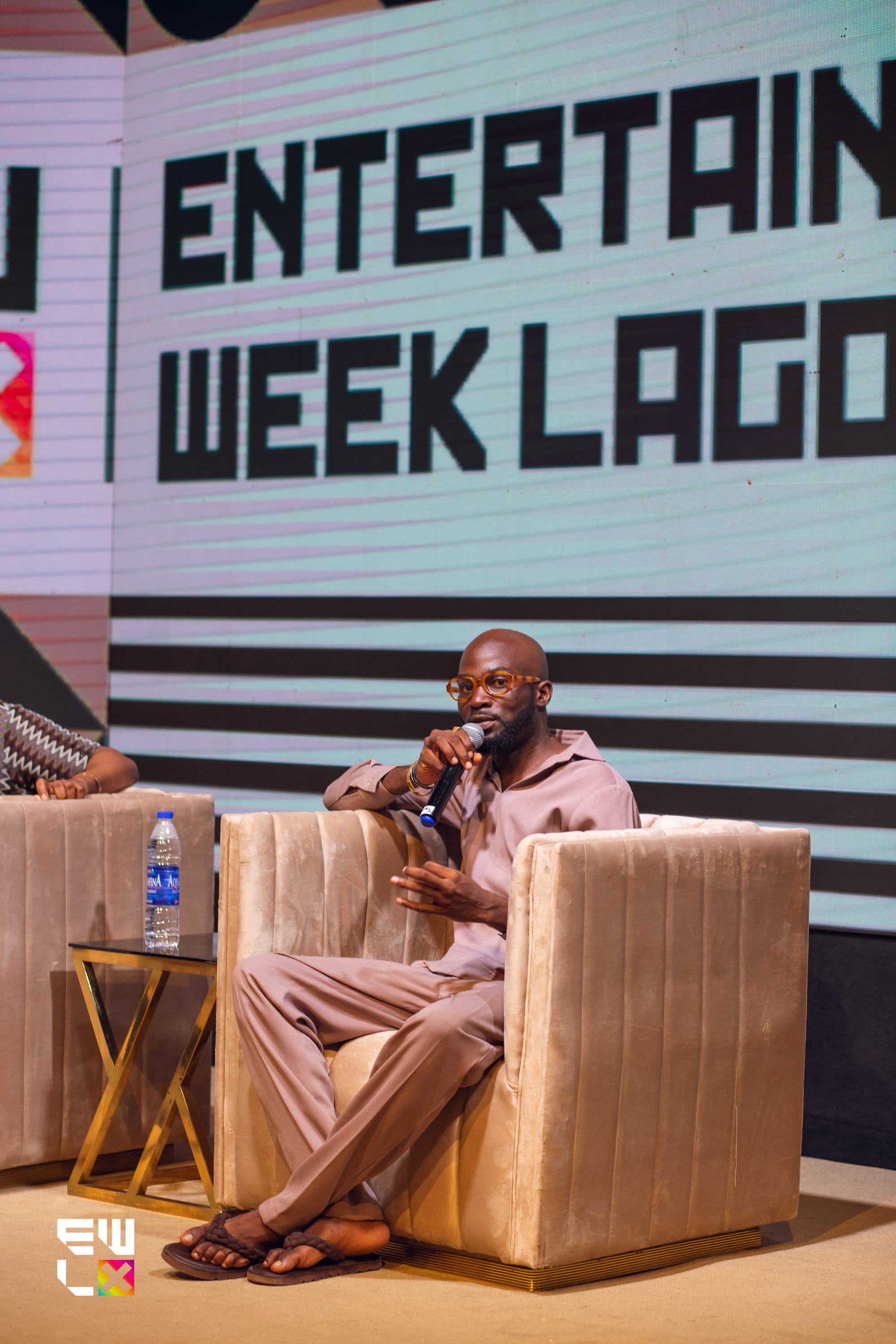
Very impressive. You mentioned at the start that you were just trying things. When did your mindset shift from just trying things out to actually feeling passionate about the creative industry?
It’s like when you’ve always dreamed of going to Disneyland. You finally go, come back, and then someone tries to flex about going there, you’d be like, “Bro, calm down.” That’s how I feel about my journey. Once I started seeing results and feedback, even though I wasn’t chasing them, it made me want to keep going. It was a kind of personal, positive reinforcement. I wasn’t just chasing success, I was chasing the joy of doing the thing well.
I love feedback, even from people who don’t like me. If I can convince someone who isn’t a fan, then I don’t have to worry about the ones who already support me. That keeps me grounded, seeking validation from within, but also learning from the harshest critics. I just try stuff, see what works, and keep building from there.
How has your work evolved recently, and how are you balancing it with personal sustainability?
We’ve done stakeholder engagements across West Africa, in Nigeria, Ghana, and recently we did a music room refurbishment project at Queens College in partnership with Femme Africa, which is honestly my favourite project of all time.
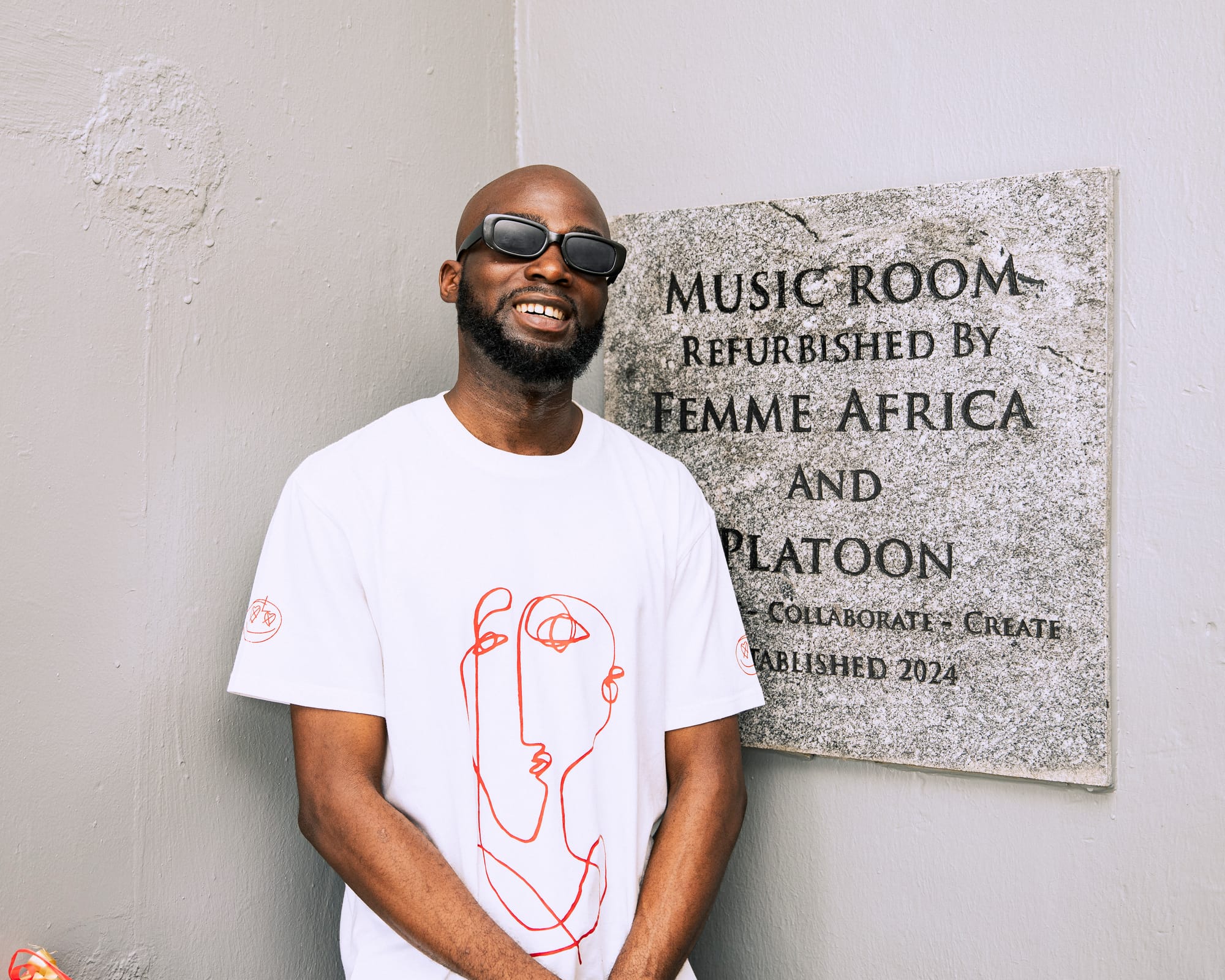
Right now, I’m just resting because, well, I don’t really try to overwork myself. On a personal level, I also work at COCOA, where we have calls with people trying to enter the industry who think I actually know what I’m doing. I host those sessions and just tell them stories, kind of like I’m telling you now, to make them comfortable with building from a place of anxiety. Anxiety is always there, but you have to push through it. There’s no other way.
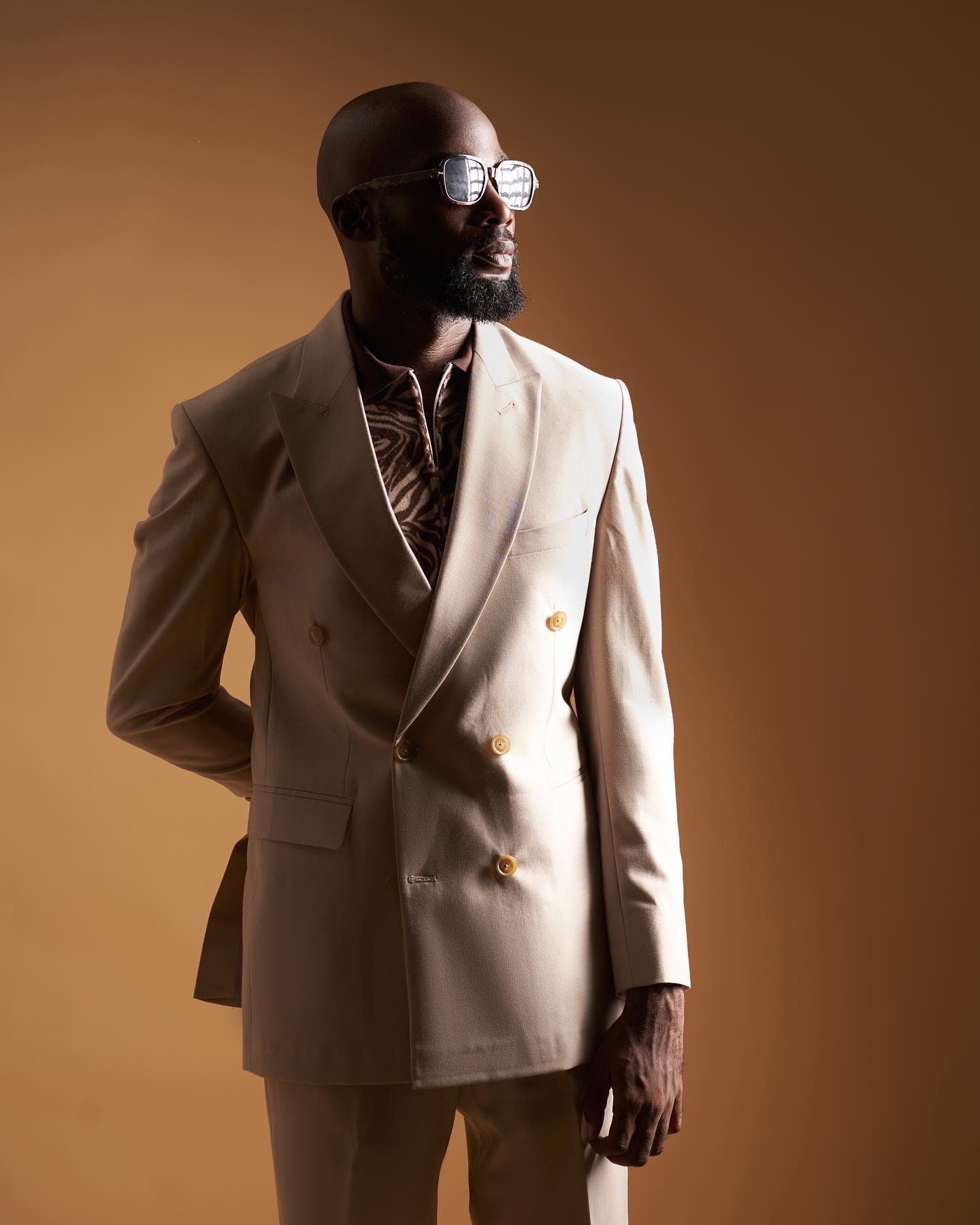
Tell us about your AI projects. How did SIP AI come about, and what impact has it had?
It’s AI in Pidgin, which is basically a localised effort to make AI knowledge accessible for informal workers operating in formal sectors, and for creative professionals working across the board. I believe Pidgin is a powerful tool because it cuts across West Africa.
For example, we’ve seen that many diaspora people working in places like China might be employed at companies where English isn’t their first language, so they struggle to communicate formally in English. That was the spark behind SIP AI, our first AI tool.
I remember being close to my colleagues who were drivers and cleaners, people whose everyday stories and needs were so real and raw. They often wanted to send emails but didn’t know how to properly word them for their heads of department. I used to help them write those emails.
From that experience, I realised there are way more people like them in the world, working in workplaces but not comfortable with English. So, we created SIP AI. Today, it has over 25,000 uses, with about 6,000 professionals actively using it since we launched in May 2023.
What other innovations have you been working on, and how are you using automation to support the creative industry?
Since then, I’ve been working with my team on Arroweye Pro and automation. Basically, anything I see that’s a routine task, I use code to automate it. If it’s an email I send every week, I automate that. If it’s a report I write regularly, I create the framework and automate it too. A lot of these tools I use myself, and also send to my friends and colleagues to test. Now, with AI, I’m able to scale computing power to solve more complex problems I face regularly.
Music marketing reporting is a huge challenge in Africa—it actually stifles a lot of investment. If I don’t have clarity in a business, I can’t invest, right? Data is what gives that clarity.
With Arroweye Pro, we’ve tested it with several record labels and label services companies across Africa and Europe. What we found is that when you give brands investing in artists or creators in Nigeria clear and transparent reporting, it boosts their confidence and increases their investment flow. They know exactly where their data is, have access to historical spending data, and can compare their spend against the Arroweye Pro they’re getting from streams and other marketplaces that host their digital products.
You’ve moved through so many phases: photojournalism, radio, tech, entrepreneurship. How has that shaped your perspective on Nigerian culture and the creative industry?
Back then, it felt like we were just playing around. Now, it’s a real industry with subcultures: music influencers, stylists, bloggers. It’s an ecosystem. Even if I’m not on Billboard, if I’m on Native Mag, I’m good. I’m still visible to the audience that matters.
I work in this industry now. It pays salaries. It opens doors. I didn’t dream of working at Apple, but here I am. Same with others working at Warner, Virgin, and so on. We’re in a renaissance era for Afrobeats. Labels that left during the military era are now coming back and hiring Nigerians to lead the charge.
Music has always been there, but now it’s exportable. Look at the Met Gala, Nigerians were front and centre. That visibility? It’s powered by music. Music is spiritual. It’s like an incantation, you play a song and it moves people, heals them, hypes them, even makes them cry.
Nigerian artists know how to channel that, whether it’s heartbreak, joy, or defiance. And behind them are teams, producers, A&Rs, marketers, all working to make that emotion travel.
Honestly, I think we need our own African Grammys. Latin music has its own institutions, and so does country music. They’re not waiting on the West to tell them they’re good. Why should we?
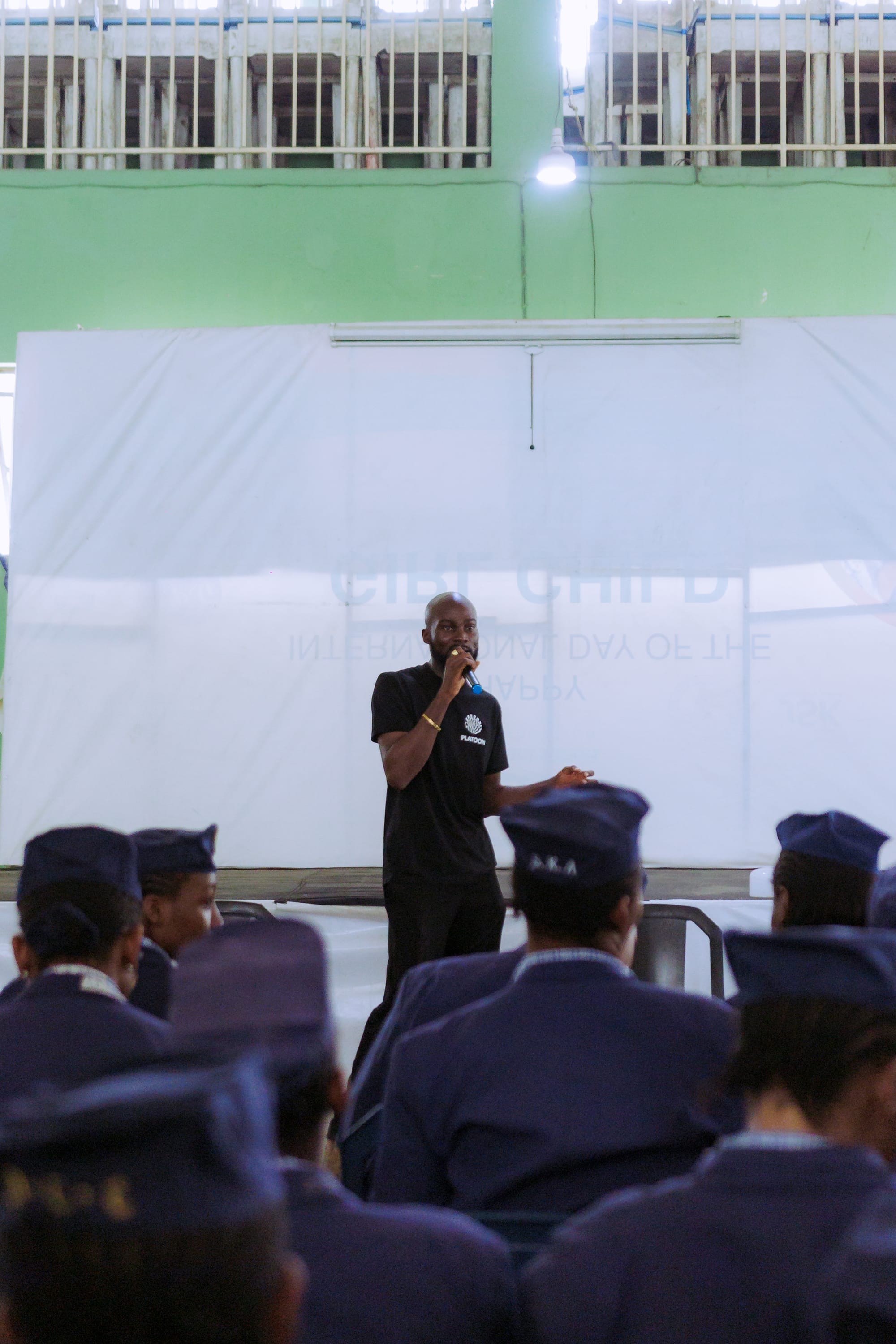
You’ve also led a lot of community projects, Invisible People of the North, Pad for a Girl, and the Queen’s College [an all-girls secondary school in Lagos] project. Why is community-centred storytelling important to you, and how do you keep empathy at the heart of it all?
Three things. First, I saw early on that change doesn’t have to come from government. In our small corner of the world, we didn’t need government funding to build a music room in a public school. That’s how powerless the system can be. Dangote built a refinery and disrupted an entire national corporation. So, imagine what communities can do if we come together. If your road is bad, fix it. No permission needed.
Second, every strong creative ecosystem I’ve studied has a strong sense of ownership. Take country music. They won’t let you in unless you’re really part of that life. I respect that. Nigerian cities should be the same. Let Lagos own its sound. Let Benin, Kano, and Abuja claim their cultural lanes and build on that. When we gatekeep with love and intention, we build lasting value. That’s how fintech moved the needle in Nigeria; people built despite the obstacles, and the laws had to catch up.
Third, one music room in QC is great, but what’s the scale? We need every label building infrastructure in every school. One-off charity projects don’t move the needle. Replication does. I love it when my ideas get stolen because that means they’re spreading. We all benefit when the ecosystem is healthy. Even if we’re competing or stealing each other’s partners, if the industry thrives, we all win.
I want us to move past events and hashtags. Don’t just talk about empowering young girls in music, build the damn studio. Let’s stop presenting problems like they’re new. Even ChatGPT can tell you what’s wrong. We need to execute.
That’s what I learned working at Apple. The system exposes your inefficiencies; you either level up or fall behind. I want that kind of structure for Afrobeats. Not just isolated wins, but systems that create lasting change. I might not live to see it fully happen, but I’ll keep doing my part.
Beyond the social work, you’ve done a lot to amplify voices, from COCOA to Clout Africa. How do you identify the real gaps in industries like music, tech, or even Arroweye Pro? What helps you recognise when a community or space needs support?
Honestly, it all comes down to empathy. Talk to people, really listen. You hear one person mention a problem, then another, and soon you realise, “This is a real issue. Maybe I can help.” And if I can’t solve it directly, I’ll bring in someone who can. It's not about fixing everything at once, but moving things forward.
Listening, intentionally and without judgment, is hard, even in personal relationships. But it's essential. People sometimes can’t express their pain fully in English, but when they speak in their native language, the emotion cuts through. That’s why I love talking to drivers, security guards, and everyday people. I learn more from them than I do from meetings.
My parents were both politicians, and they taught me that lesson early. At the end of the day, empathy is a core principle. Even across religion, their stories all point back to compassion and deep listening.
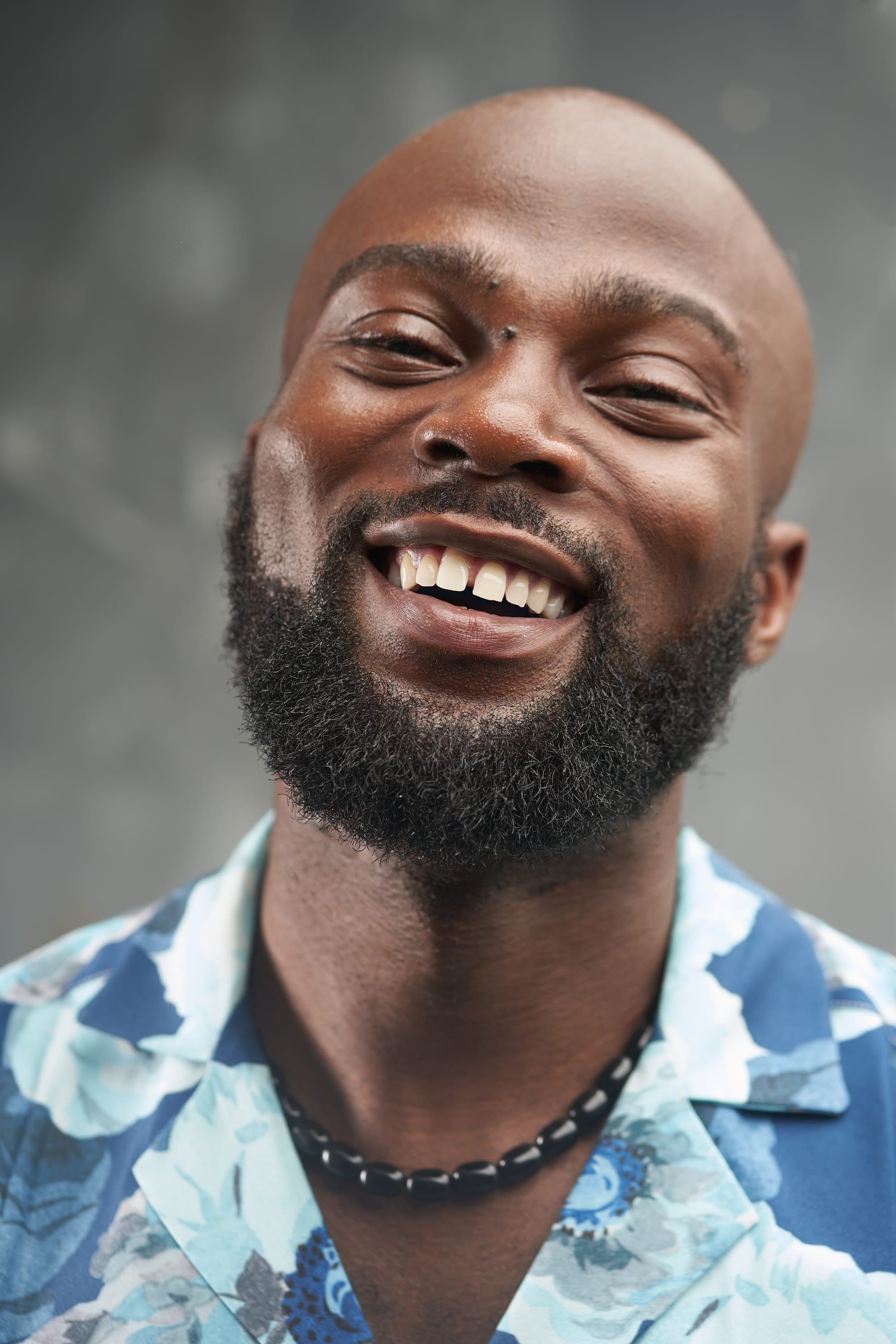
You’ve been in tech for a while now with COCOA and Arroweye Pro, you’re integrating AI and education into the creative space. What excites you about that intersection?
The way we consume music is already driven by tech, iTunes, Spotify, Apple Music, and AI-powered playlists. But what really excites me is what’s next: digital experiences becoming physical products.
Why can’t artists have fan clubs with annual memberships? Imagine perks like NFC show passes or exclusive merch. I’d buy it. But here’s the problem: streaming revenue isn’t rising, and marketing is getting more expensive. Social media algorithms are unpredictable. You can’t rely on virality.
That’s why we need to bring back campus tours—that’s how fan bases were built. Small gigs sharpen artists before they hit the big stages like the O2. You don’t want someone blowing up online and flopping live. We need balance: digital streams and real-life performance infrastructure.
With Aux Radio, we turned an underperforming weekend slot at Cool FM into a hotspot. We told them: these artists have friends, roommates, family who’ll tune in. And they did, listenership spiked in three weeks. Advertisers followed. People want to hear their people on air.
That kind of grassroots support is powerful. If I hear Wizkid on the radio, I might skip it, I'll find it online later. But if I hear my friend? I’m locked in. That’s accountability and connection. We need more of that. Campus tours, local radio, real venues, not just bars selling overpriced drinks, but places with stages, bands, DJs, full setups.
Let Nigerian brands supply everything: furniture, mic stands, stage design. Have you seen Sinners? That film had an African soul. Characters rich in aesthetic and energy. The visuals, the costume, the simplicity, it shows what’s possible.
We need that vibe in real life. I want to buy a Wizkid extension cord, watch Davido’s album as a pop-up TV channel, or walk into an airport showing a documentary on Afrobeats. We have the culture, we just need to put it everywhere.
Is there a dream project you haven’t worked on yet?
To be honest? No social media, a landline, and mornings on a beach with my girl. A farm where I grow my own food. That’s the dream.
But seriously, I don’t chase projects, I look for problems. One big goal is a university tour, then music programs in every school, funded by labels. There are kids in America signing $2 million deals at 11 years old. That can happen here, too. Same talent. Same audience. We just need structure.
If I’ve done something that worked once, I want to see it everywhere, nationally, continentally. Physical products by African artists, real pipelines from school to studio to stage. And yeah, that tour. If I haven’t said it enough, the university tour.
But ultimately? I want to drop the phone one day, know I’ve tried, and just go be with my family.
This was wonderful. Thank you for speaking with me!

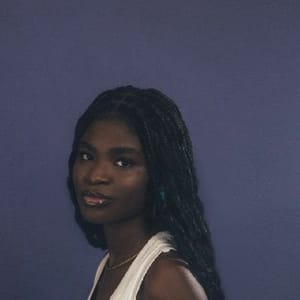
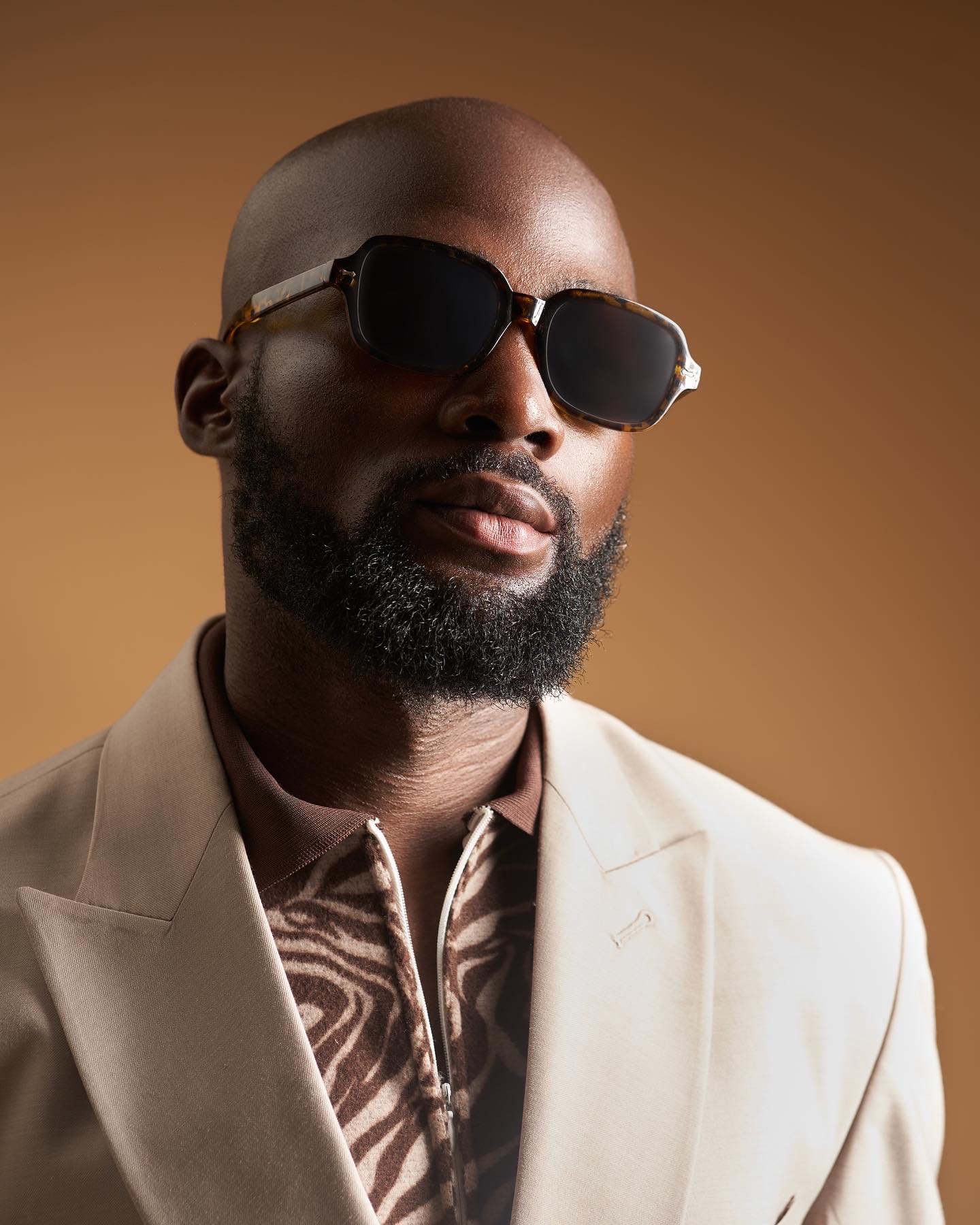
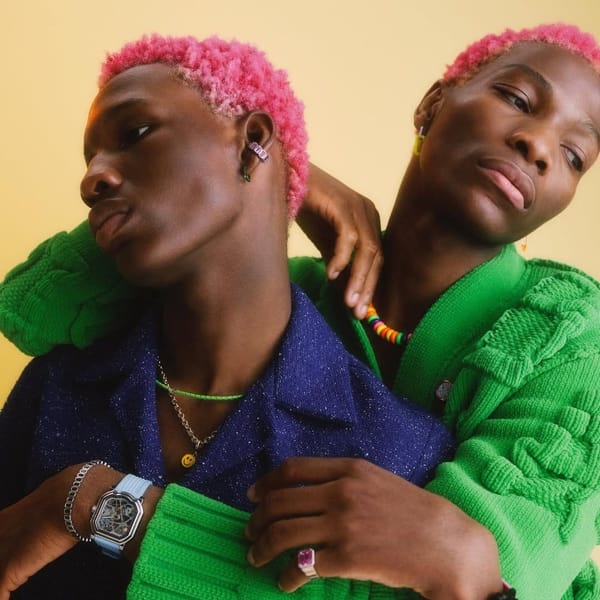
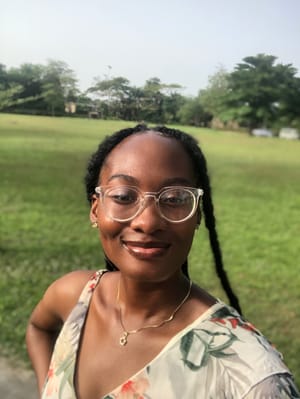
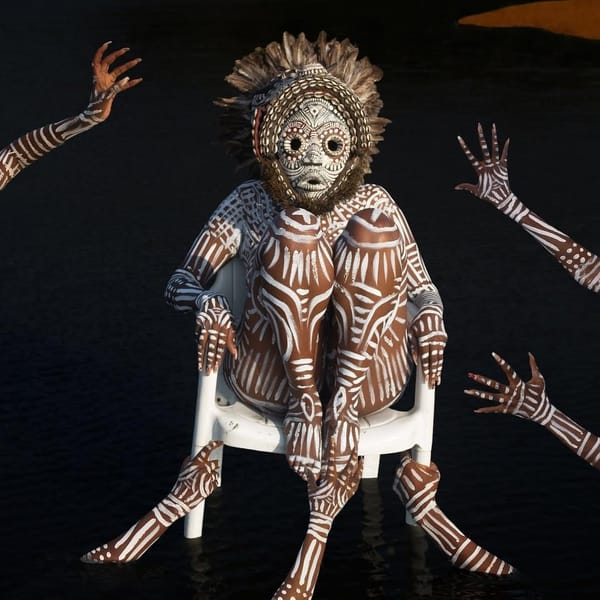
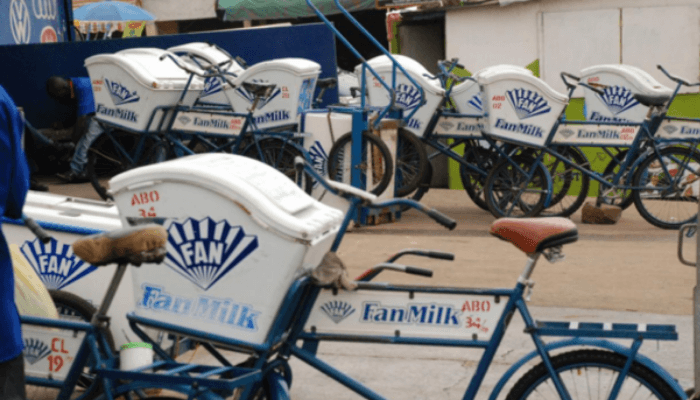
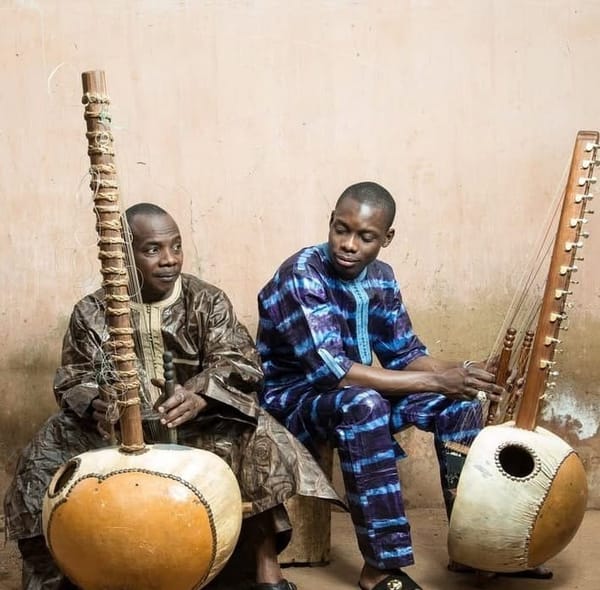
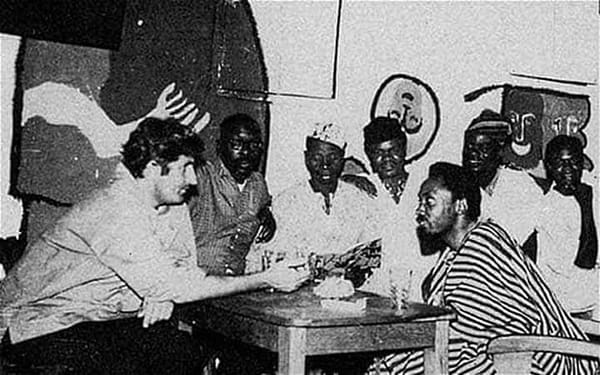
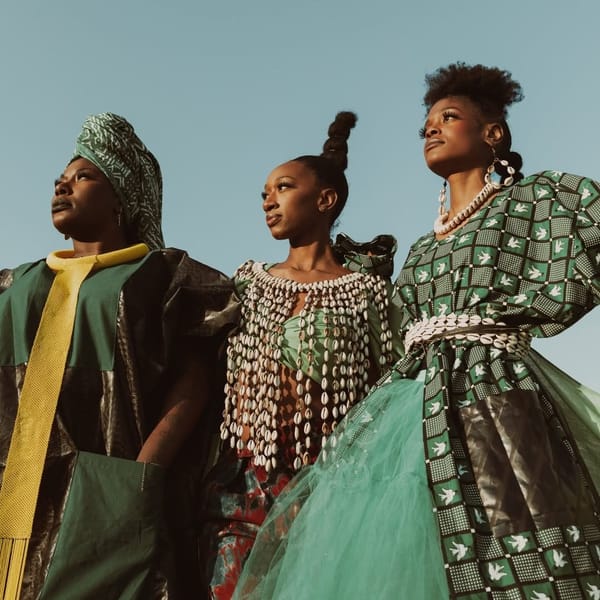
Member discussion